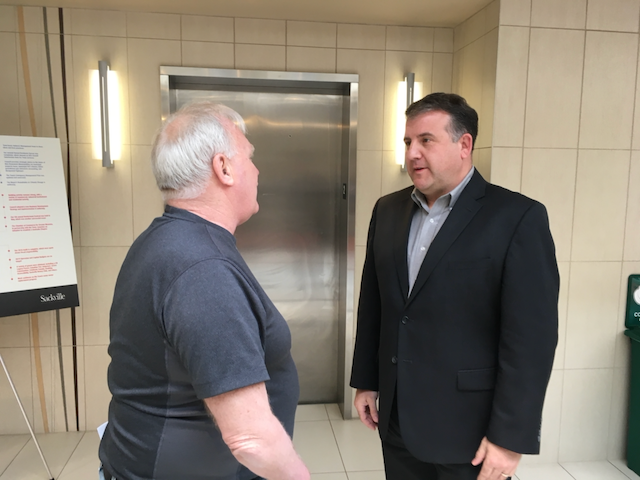
The provincial government says changes to local government funding will “provide financial stability to local governments and rural districts,” but changes to the law have prompted a backlash.
Bill 120 received Royal Assent on Tuesday, effectively freezing local government funding across the province at its current level of about $76 million for the next five years.
Megan Mitton, the MLA representing Memramcook-Tantramar, said municipal reform will download more responsibility from the province onto local governments without funding them adequately.
“Municipalities want there to be stability, but not stagnation,” Mitton told lawmakers in the provincial capital last week.
Liberal MLAs also criticized the law. Jacques LeBlanc, who represents Shediac-Beaubassin-Cap Pelé, said in the Legislative Assembly on Tuesday it will force municipalities to raise taxes.
Opposition members also criticized the government for rushing the legislation through the Legislative Assembly.
Formula changing
The current formula has been in place since 2013, and includes so-called equalization and core funding.
The equalization system, which dates back to 1967, involves the redistribution of tax revenue across the province so that less prosperous communities can still offer a certain level of services.
Under the new system, equalization payments remain in place, but will be adjusted annually by a maximum of three per cent, through a comparison of local and provincial tax base growth.
Core funding, on the other hand, will be phased out over the next five years, as funds are directed to New Brunswick’s 12 regional service commissions.
Those RSCs will see their mandates expand as part of sweeping municipal reforms currently underway.
What are local governments supposed to do as core grants are phased out?
The provincial government says local governments will have more “flexibility” to increase taxes on non-residential properties.
The property tax rate for non-residential properties previously stood at 1.5 times the rate for homeowners.
New Brunswick is now giving local governments more discretion, allowing them to tax non-residential properties anywhere from 1.4 to 1.7 times the rate for homeowners.
What does it mean for Tantramar?
Figures from the provincial government indicate that the new Town of Tantramar will receive about $167,000 in Core and Equalization Grant money next year.
That’s roughly $11,000 less than the amount that Sackville and Dorchester – which are being merged with other neighbouring communities to create the new Town of Tantramar – would have previously received, according to Michael Beal, Treasurer for the Town of Sackville.
In an interview, he raised longstanding demands for the province to recognize Mount Allison students as part of the population, saying it would result in more funding for the municipality, which already provides students with services.
The town has “never received significant core funding,” nor does it receive equalization money, he said.
Interview with Michael Beal, Treasurer for the Town of Sackville, recorded October 5, 2022:
In an emailed statement, a government spokesperson said the overall funding would increase slightly, when everything is taken into account.
“The new local government of Tantramar will receive approximately $27,500 more when all components of the new formula are put together,” Vicky Lutes said.
“The new municipality has a tax base growth of 8.73 per cent over what the individual communities had in 2022,” she added.
Lutes also suggested the Town of Tantramar could raise about a quarter of a million dollars through taxing non-residential properties at the higher rate.
“[T]he new municipality could avail itself of $277,699 if it did take up the tax room at 1.7 times the local rate on non-residential (business) properties.”
To put things in perspective, Sackville’s general operating budget is about $12 million annually, according to Beal.
